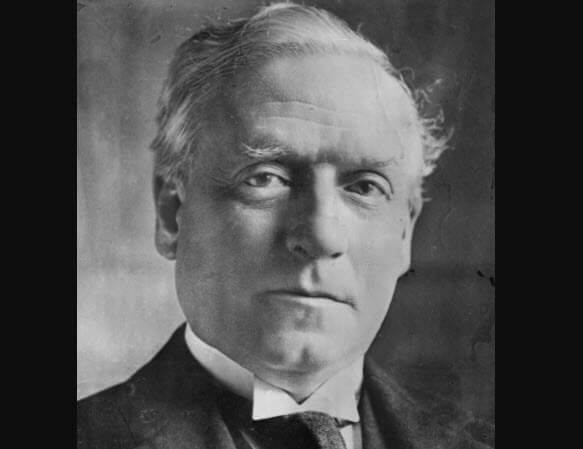Who was Herbert Henry Asquith? What did Herbert Henry Asquith do? Information on Herbert Henry Asquith biography, life story and career.

Source: wikipedia.org
Herbert Henry Asquith; (1852-1928), British statesman, who was prime minister for eight and a half years before and during World War I. He was born at Morley, Lancashire, England, on Sept. 12, 1852. The son of a wool spinner who died in 1860, Asquith received his early education at Huddersfield and at a Moravian boarding school near Leeds. In 1863 he entered the City of London School, where his brilliance attracted the notice of the headmaster, Edwin Abbott. Entering Balliol College, Oxford, in 1870, Asquith fulfilled his earlier promise and in his last term was president of the Oxford Union. Elected a fellow of Balliol in 1874, he entered Lincoln’s Inn, which admitted him in 1876.
Asquith married Helen Kelsall Melland in 1877. For the next few years he added to his income by writing for the Economist and Spectator and began to devote his leisure to politics, as a Gladstonian Liberal. He entered Parliament in 1886 as member for East Fife, in Scotland, a seat he held for 32 years. He soon became an important voice in the House of Commons, where he opposed the policy of Arthur James Balfour, then chief secretary for Ireland. As junior counsel for Charles Stewart Parnell in 1888— 1889, Asquith added to his reputation. In 1890 he became queen’s counsel.
Following the 1892 elections he became secretary of state for home affairs in the last Gladstone cabinet. The death of his wife in 1891 had left him a widower with five young children, and in 1894 he married Emma Alice Margaret (Margot) Tennant.
From 1895 to 1905, Asquith was out of office. When the Boer War (1899-1902) divided the Liberal party, he joined the imperialist wing in opposition to Sir Henry Campbell-Bannerman. In 1902, Asquith helped reconcile the party’s opposing factions, and in 1905 he became chancellor of the exchequer under Campbell-Bannerman. Though he generally adhered to traditional economic policy, Asquith included some progressive elements in his budgets. His third budget made the first provision for an old age pension bill. On Campbell-Bannerman’s retirement in April 1908, Asquith became prime minister.
Continual frustration of his social reform legislation by a Conservative majority in the House oi Lords persuaded Asquith to mount a sustained effort to limit the power of the peers. His deftness in handling the constitutional struggle resulted in reduction of the upper house’s power with passage of the Parliament Act of 1911. Asquith’s home rule bill for Ireland was passed just after the outbreak of World War I but was not put into effect until after the war.
In 1915, Asquith formed a coalition cabinet that included one Labourite, but dissension within the cabinet caused Asquith’s resignation in December 1916, and he was succeeded by David Lloyd George. The 1918 election practically destroyed the opposition Liberals, and Asquith himself was defeated in East Fife. A by-election at Paisley in 1920 returned him to Parliament, where he urged dominion home rule for Ireland and decried the methods of the Black and Tans. Home rule was granted finally in 1921.
Throughout his political life, Asquith felt that women should not be in politics. However, their role in the war and the overwhelming sentiment for their enfranchisement led him to support the act of 1918 giving them the vote, and to favor lifting restrictions that prevented their sitting in Parliament.
Defeated in Paisley in 1924, Asquith retired from politics. In 1925 he was created Earl of Oxford and Asquith and made a Knight of the Garter. He continued to lead the Liberal party until October 1926, when he resigned because of differences with Lloyd George.
In the year before his death he wrote Memories and Reflections, (1928), following his earlier Genesis of the War. (1923) and Fifty Years of Parliament (1926). He died at Sutton Courtney, Berkshire, on Feb. 15, 1928.
Emma Alice Margaret (Margot) Tennant Asquith (1864-1945), his second wife, was a socially prominent wit and writer. The marriage offended many of Asquith’s conventional Victorian friends, but the match was a very happy one. Margot Asquith was a brilliant hostess, and she aided her husband’s career considerably. Her Autobiography of Margot Asquith (1922) is a lively account of her early life. Among her other writings are Places and Persons (1925), More Memories (1933), and Off the Record (1944), a collection of 11 sketches of British prime ministers. She died in London on July 28, 1945.
mavi